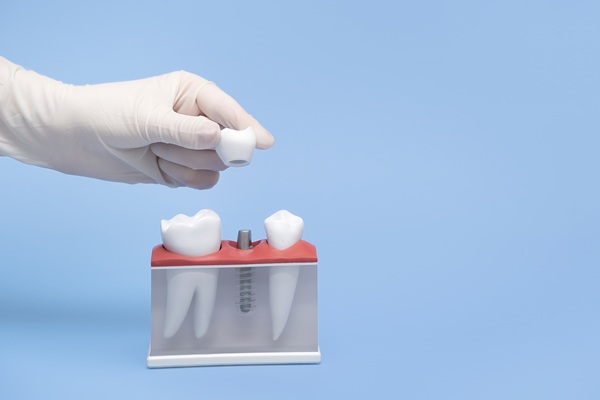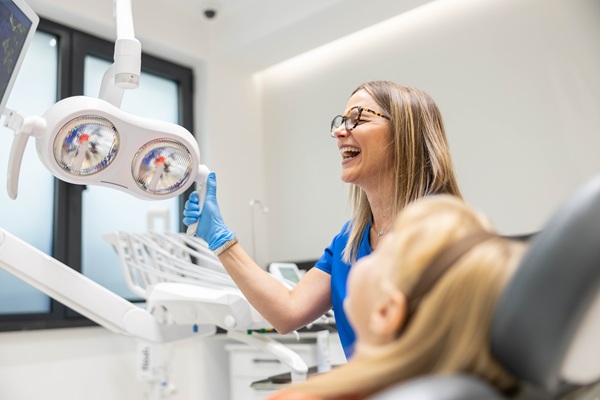 A regular visit to the family dentist may reveal that a patient has a chipped or cracked tooth. A patient generally knows if a tooth is fragmented due to its appearance. A tooth can become damaged from improper biting, cavities, poor hygiene, teeth grinding, and trauma. A cracked tooth is often harder to notice because many cracks are invisible to the human eye. Both conditions should be remedied to prevent future problems of the teeth and gums. All patients should consult with a dentist to see what options are available for repairing chipped or cracked teeth.
A regular visit to the family dentist may reveal that a patient has a chipped or cracked tooth. A patient generally knows if a tooth is fragmented due to its appearance. A tooth can become damaged from improper biting, cavities, poor hygiene, teeth grinding, and trauma. A cracked tooth is often harder to notice because many cracks are invisible to the human eye. Both conditions should be remedied to prevent future problems of the teeth and gums. All patients should consult with a dentist to see what options are available for repairing chipped or cracked teeth.
Recognizing a chipped or cracked tooth
If a chipped or cracked tooth is left untreated, it may lead to infection of the tooth pulp, gums, or jawbone. Thus, a patient should be aware of the signs of a damaged tooth. One of the first indications is intermittent pain. Pain may appear when biting down or while eating and drinking.
Another sign is sensitivity: A tooth may hurt when consuming something hot or cold. A tooth may be sensitive to sticky, sour, or sweet substances as well. Sometimes it is hard for a patient to identify exactly which tooth is causing the pain or sensitivity. A visit to the family dentist can help identify which tooth is injured.
Treatment options for a chipped or cracked tooth
Depending on the severity of the chip or crack, a dental professional may suggest a variety of treatment options. If the chip or crack is small enough and the patient is not experiencing any pain, the tooth may be left alone. If the patient has pain and sensitivity that affects normal oral health, there are a variety of possible treatments.
Reattaching
A patient should schedule a dental consultation as soon as possible after a tooth has been chipped. If a small piece of a tooth has broken off and the patient saves the piece, it may be possible to reattach it.
Bonding
If the size of the chip or crack is small, a dental professional may suggest bonding the tooth. This process uses composite material molded to cover the damaged area of the tooth. The material is cured so that it imitates the hard enamel of a tooth and can be shaped and colored to match the other teeth. Bonding of a tooth typically lasts up to 10 years.
Root canal
The severity of the crack dictates what treatment options are available. If a patient has a crack that extends into the pulp of the tooth, it may be possible to save the tooth with root canal treatment.
Extraction
If a crack in the tooth spreads into the gum line, it is no longer possible to treat the tooth with any of the options mentioned above. The tooth will probably need to be extracted.
Conclusion
If patients have any signs of a chipped or cracked tooth, they should visit their family dentist. Early treatment is important to achieve a desirable outcome.
Request an appointment or call Smiles Dental Care at 650-563-1180 for an appointment in our Mountain View office.
Recent Posts
Visiting a family dentist biannually (every six months) can help maintain optimal oral health. A family dentist provides consistent, comprehensive professional care that can prevent serious dental issues before they develop. This routine schedule offers a practical approach to long-term oral hygiene and wellness.Seeing a family dentist every six months is important because these visits…
One of the many things that a family dentist does is detect and treat tooth decay. According to the Centers for Disease Control and Prevention, more than 90% of adults in the United States have had a cavity at some point in time. Even though this issue is quite common, it does not mean that…
Routine dental checkups are just as important as brushing and flossing when it comes to oral health. Visiting a family dentist is a smart and convenient option that can provide a number of important advantages for the whole family and help to ensure you all maintain healthy teeth and gums.Some people may assume that there…


